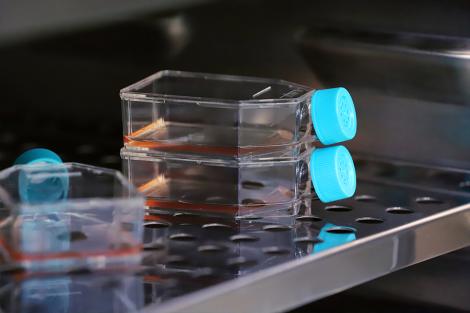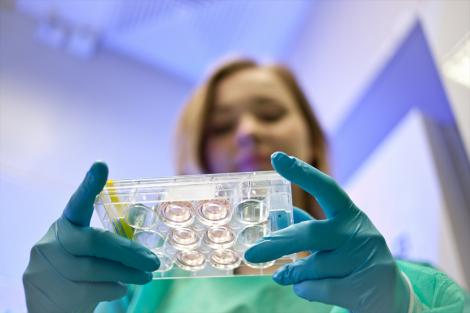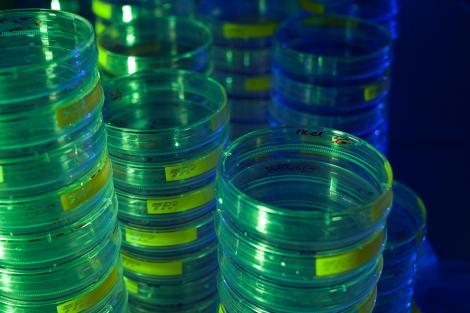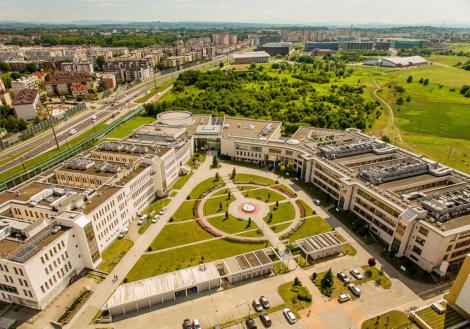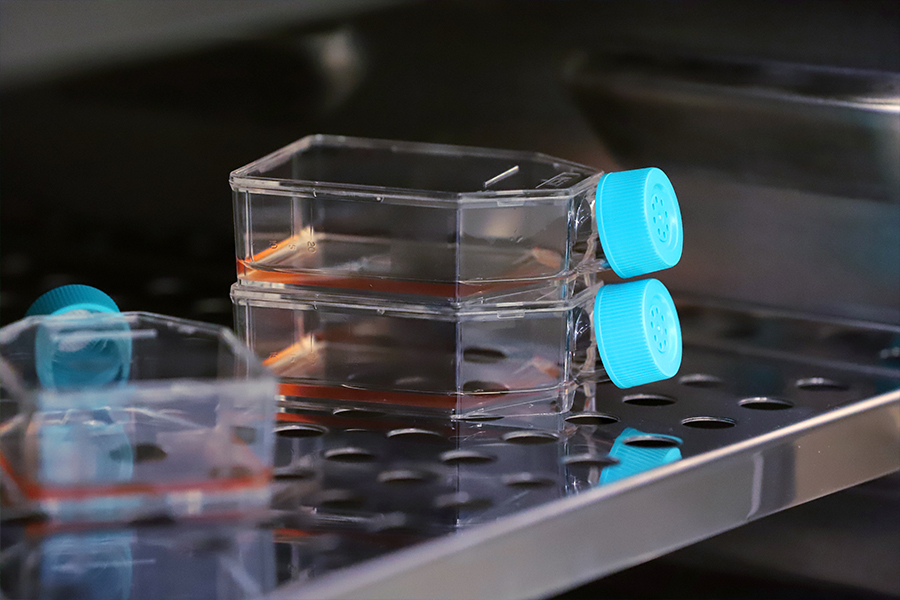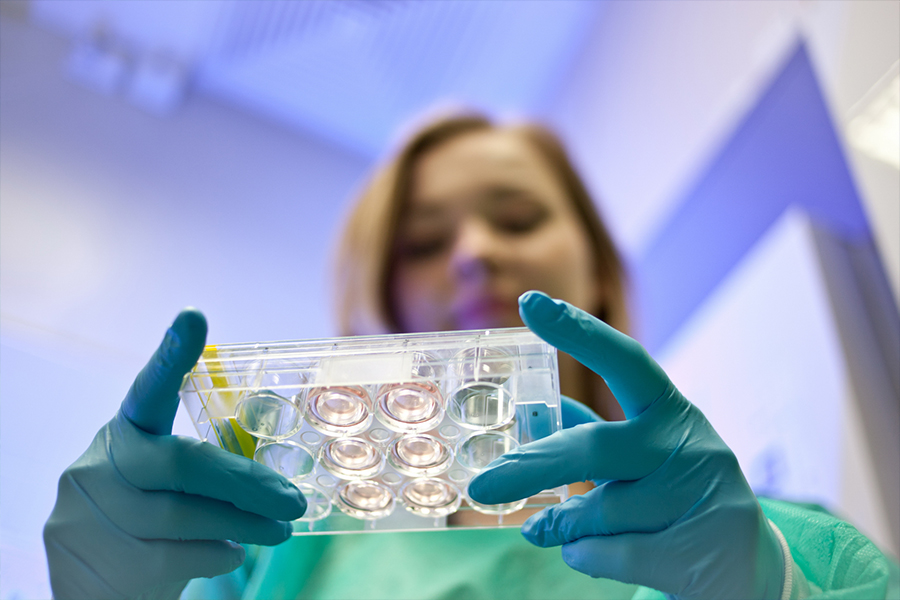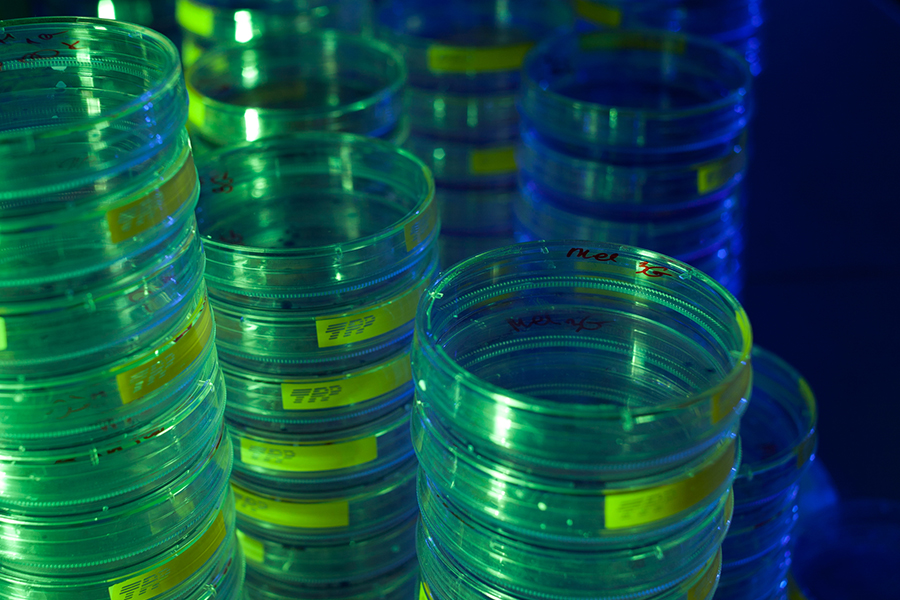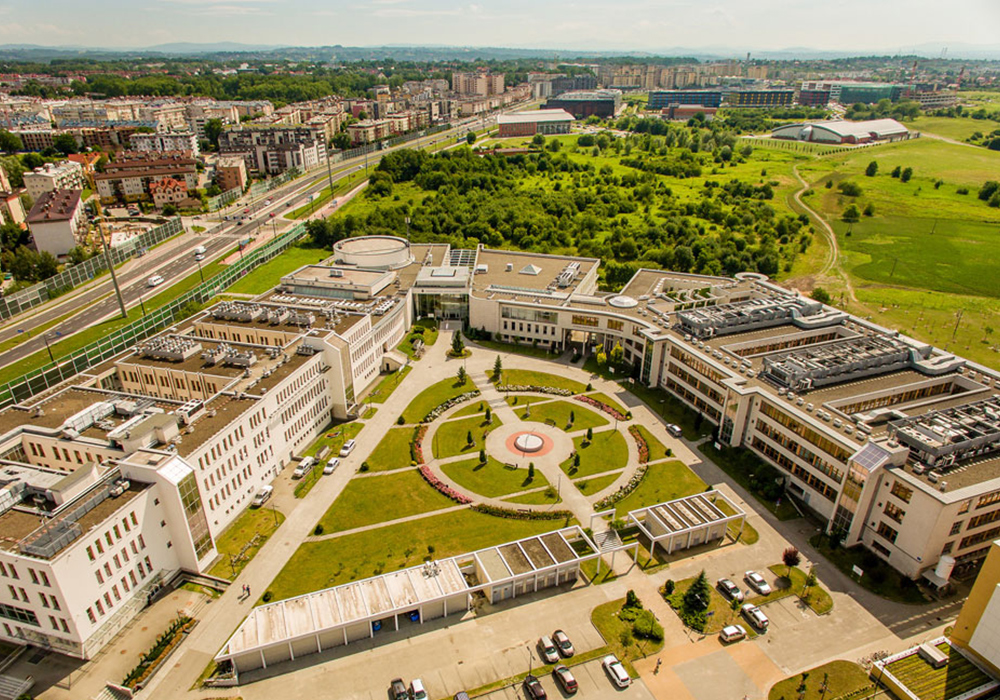Please be informed this study programme is offered in Polish—to undertake this programme knowledge of Polish language at least at sufficient level is required and will be verified upon application. If you do not speak Polish you can enrol in one of Polish language courses offered by Jagiellonian University School of Polish Language and Culture. Full list of programmes in foreign languages you may find here: Programmes in foreign languages.
 Web Content Display
Web Content Display
 Web Content Display
Web Content Display
 Web Content Display
Web Content Display
Molecular Biotechnology
Faculty of Biochemistry, Biophysics and Biotechnology
Available programmes
first-cycle programme
not available
second-cycle programme
study mode: full-time programme
language of instruction: Polish
profile: general academic
duration: 2 years (4 semesters)
title: Magister (equivalent of Master’s degree)
main discipline: Biological Sciences
Programme description
Molecular Biotechnology is a master's degree programme that is an essential supplement to undergraduate studies. Apart from the classes for preparing the diploma thesis (master's seminar, specialization laboratories, and master's thesis), there are only a few additional compulsory courses in the studies programme. The remaining major and specialist subjects are optional - students can choose them according to their interests and career plans. The group of several dozen subjects to choose from includes courses on genetic modification, protein design, tissue engineering, the use of stem cells and gene therapy in medicine, obtaining monoclonal antibodies, and the production of biofuels.
Second-cycle studies in Molecular Biotechnology are aimed at: acquiring practical skills by students; learning about the advantages and limitations of the most significant possible number of methods and techniques used today in research laboratories; developing the skills of planning experiments, independent work, critical analysis of results as well as collecting and verifying scientific information.
Information regarding Faculty
Faculty of Biochemistry, Biophysics and Biotechnology is Poland's best research and didactic unit. Research conducted at the Faculty of Biological Sciences and Humanities focused on the processes taking place at the cellular, molecular and atomic levels in plants, animals, and microorganisms. As part of its activities, the department cooperates with several dozen centers in Poland and worldwide. Also, it carries out research projects with companies from the pharmaceutical and biotechnology industries.
The faculty building is located on the Campus of the 600th Anniversary of the JU Revival in the southwest of Kraków and vicinity of other natural and science faculties of the Jagiellonian University. There are perfectly equipped laboratories and computer rooms which allow students to get to know with specialized and advanced research techniques. Students may use the Natural Science Library that contains multidisciplinary collection of books and magazines regarding biochemistry, biophysics, biotechnology, biology, zoology, geography and related sciences.
The study programmes implemented at the faculty received several awards from national institutions dealing with assessing the quality of education.
👉 Learn more about the Faculty of Biochemistry, Biophysics and Biotechnology
Rankings, distinctions, accreditations
- 1st place between 2014 and 2023 in the Ranking of Study Programmes prepared by the ‘Perspektywy’ Education Foundation
- Oustanding evaluation of the study programme rating awarded by the Polish Accreditation Committee (PKA)
- Status of the Leading National Research Centre (KNOW) between 2014 and 2018
- Scientific category A in the main discipline of Biological Sciences awarded to the Jagiellonian University in Kraków by the decision of the Minister of Education and Science
Curriculum overview
In the programme curriculum, you may find information about the subjects you will attend while studying this programme. The programme indicates which subjects are scheduled for each semester of the studies, which are mandatory, which belong to the group of elective subjects (so-called optional subjects), which of them end with an exam, and which do not. Each subject in such a programme curriculum has its syllabus, which is a description of what students learn within the scope of that subject.
Student matters
- Live and learn in Kraków
- Dormitories
- Scholarships
- Academic calendar
- Exchange programmes
- Academic Sports Association
- JU Student Government
- Safe Student
- Student Centre for Support and Adaptation
- Accessibility Center
International Students Office
Centre of Academic Support
internationalstudents.uj.edu.pl
iso@uj.edu.pl
ul. Ingardena 6, 30-060 Kraków, Poland
Student Scholarships Office
Centre of Academic Support
stypendia.uj.edu.pl
stypendia@uj.edu.pl
ul. Ingardena 6, 30-060 Kraków, Poland
Student’s life
Time spent at the university is not all about education and class participation; it is also an excellent opportunity to develop hobbies and interests. Many research societies and student organizations work at the Jagiellonian University, including faculty- and university-wide ones. These societies allow students to spend their free time actively, gain knowledge, develop their talents, participate in engaging, unconventional projects, go on research and team-building trips, participate in conferences and meet fellow students outside the lecture halls. There are four student research groups at the Faculty of Biochemistry, Biophysics and Biotechnology, f. e. Student Research Group 'Mygen' and Academic Association of Students of Biotechnology.
Students interested in the international dimension of studying can participate in a wide variety of exchange programmes such as Erasmus+, CEEPUS, Utrecht Network, exchange programmes within Bilateral Agreements or European university Una Europa, or participate in a domestic mobility programme called MOST. At the second-cycle programme, students may also apply for an 11-month scientific internship under the BioLab–The Visiting Research Graduate Traineeship programme offered by four USA universities.
More than just studies
- International student exchange
- Student Government of the Faculty of Biochemistry, Biophysics and Biotechnology
From our lecturers
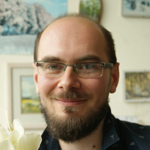 Dr Paweł Jedynak
Dr Paweł Jedynak
The university is people - a strange melting pot in which various ways of thinking, their problems, fears, and hopes tumble. Individual fields of study teach how to solve these problems and make dreams come true. It is worth realizing this and observing - yourself and others. And then great ideas will emerge.
Go to the video
All about admission
- Admission statistics
- Welcome to the Jagiellonian University
- Admission for programmes in Polish
- Online Application System
- International Students Office
Admissions Office
Centre of Academic Support
welcome.uj.edu.pl
welcome@uj.edu.pl
ul. Ingardena 6, 30-060 Kraków, Poland
Admission to studies
Admission to study programmes at the Jagiellonian University is conducted electronically in the Online Application System: irk.uj.edu.pl. If you have any questions related to admission, please contact the Admissions Office directly or visit the websites: welcome.uj.edu.pl and irk.uj.edu.pl.
Detailed information about admission to this study programme, including information on the method of calculating the result, qualification criteria, fees, deadlines, and a list of required documents are available on the Online Application System (IRK): irk.uj.edu.pl
Transfer from other university or study programme
Transfer from another university, including a foreign one, or change of study programme within the University is possible with the dean's consent after completing the first year of studies and fulfilling additional requirements established by the Faculty Council. For inquiries regarding transfer, please contact the unit responsible for the specific study programme directly.
See also
- Job offers, internships, and volunteerings for students
- Workshops & presentations
- Career counseling
- Mentoring support
- JU Alumni
Careers Service
Centre of Academic Support
biurokarier.uj.edu.pl
kariery@uj.edu.pl
ul. Ingardena 6, 30-060 Kraków, Poland
Graduates
Graduates of Molecular Biotechnology programme are prepared to work:
- in research laboratories (in Polish and foreign research centres), in R&D departments (in biotechnology, pharmaceutical, and related companies), in diagnostic, control, and service laboratories (e.g., in the diagnosis of genetic diseases), in forensic laboratories
- in government agencies (for projects related to the safety of food, drugs, medical therapies, and research funding programs)
- in companies producing specialized equipment and creating new technologies, companies in the chemical analytics industry, pharmaceutical companies, etc. - in marketing and sales departments, as customer contact consultants, medical representatives
- in the media (Internet, press, TV, radio) to popularize science
- at the junction of science and business, in companies operating to introduce Polish scientific thought to industry
Further education possibilities
- Doctoral School, f.e. Doctoral School of Exact and Natural Sciences
- Second-cycle programmes
- Post diploma programmes
What alumni say about us
Contact
The study programme is conducted at the Faculty of Biochemistry, Biophysics and Biotechnology located in the Campus of the 600th Anniversary of the JU Revival, so-called the Third Campus, in Kraków’s district – Ruczaj. For more information, please contact:
ul. Gronostajowa 7
30-387 Kraków, Poland
Phone: (+48) 12 664 54 51, 664 60 00
Other programmes that may interest you
- Molecular Biotechnology (Faculty of Biochemistry, Biophysics and Biotechnology)
- Biochemistry (Faculty of Biochemistry, Biophysics and Biotechnology) – programme in Polish
- Molecular and Cellular Biophysics (Faculty of Biochemistry, Biophysics and Biotechnology) – programme in Polish
- Bioinformatics (Faculty of Biochemistry, Biophysics and Biotechnology) – programme in Polish
- Medicinal Chemistry (Faculty of Chemistry) – programme in Polish
- Biotechnology (Faculty of Biochemistry, Biophysics and Biotechnology) – programme in Polish


